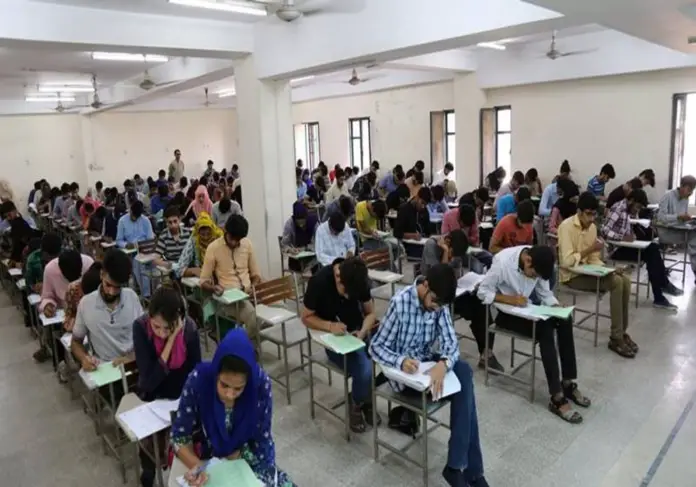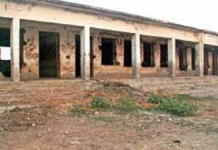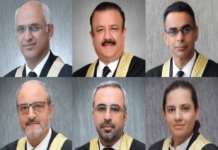After rolling back Pakistan Tehreek-e-Insaf’s much-trumpeted Single National Curriculum (SNC) by the federal government, whether the Punjab government will also reverse the outgoing government’s concept-based assessment system for students remains to be seen.
The PTI government’s educational experts had pledged to end the traditional learning and evaluation system in the education sector. They had changed the syllabus as well as the examination system. Instead of questions from books, the idea of concept-based questions was put forth.
The PTI government had time and again stressed that the purpose of the SNC was to reduce disparity for all the segments of society. The ultimate goal, as the proponents of the SNC propagated, was to end the rising polarization and extremism in the society. The PML-N government has already stopped the implementation of SNC across the province.
These days, students are taking exams across the province. The students of primary and elementary schools are being assessed after the end of the educational year. There is a hue and cry among students and also teachers on the Punjab Education Commission’s (PEC) question papers. The questions are out of the syllabus, said a government school teacher. It is not possible for the students to solve or answer questions asked in the PEC question papers.
Asif Ali, a teacher from Himayat-e-Islam School, Lahore was of the view that the PTI’s educational minds and policymakers had gone against the flow of the river. He was of the view that the traditional education system of the country should not be disturbed, adding that it was convenient for the students and teachers.
Mohammad Afzal, an elementary school teacher in Lahore, said that the government should avoid new experiments in the education system. He said that out-of-syllabus questions would create difficulties not only for students but also for teachers. He said that the question papers should be set from the given books only.
Doctor Mohammed Imran, from Punjab University, said that at all levels, the students should be taught what they needed to thrive in the modern world. He opined that the traditional rote learning and delivery of lectures was an age-old method and of no use. He added that the need was to introduce innovation, creativity skills, and problem-solving so that the analytical thinking of the children improves.
Dr. Imran said that the teachers should be facilitators instead of content deliverers. The education system should be task-oriented and project-based, keeping in view the future requirements of the digitized world, he said. He stated that the world was moving towards artificial intelligence and science and research-based applications should be part of our education system. Instead of replicating, Lord Macaulay’s education model that focused on producing robots, clerks and slaves our educational experts and policymakers should devise a system that focuses on entrepreneurship and humanitarianism.
The students’ only purpose is to get good scores and to achieve this objective they do all that the system demands. They join academies and tuition centres to get more and more marks. Their analytical thinking, problem-solving skills, and target-oriented growth are inversely affected.
Prof. Arshad Ali, who teaches at a university, was of the view that our traditional education system lacked student-focused learning. He said, “There is no concept of critical thinking and process-oriented learning. It is not concept-based rather it promotes rote learning and last but not least, it lacks interactivity.”
He said that the traditional education system makes the students dependent on their teachers which suppresses their creativity and personality-building. “The out-of-syllabus questions are asked just to check whether students have mugged up or understood the concepts,” he added.
He further said that the paper patterns set by the PEC have truly disturbed the educators who liked the traditional education. “There is no habit of extracurricular book reading in our schools. The teachers don’t like to consult reference books,” he added.
Furthermore, educationists have recommended that government should not discourage the reforms initiated by the outgoing educational minds and should improve them if needed.







